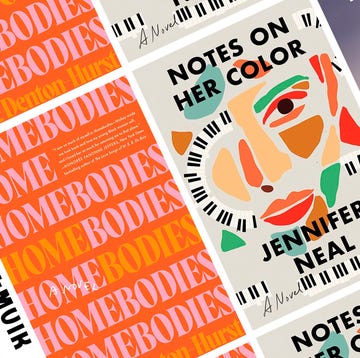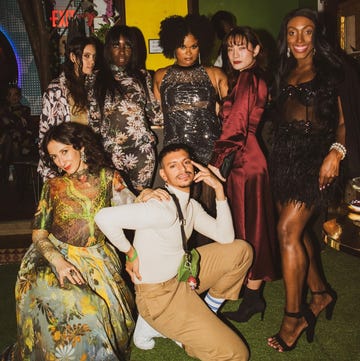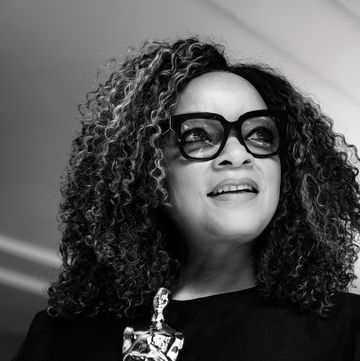Jazz is inarguably one of the most influential, foundational, and revered musical genres, yet it’s also one that has been relegated to the margins of mainstream culture over the past few decades. But at this year’s Grammy Awards ceremony, vocalist Samara Joy and pianist, producer, and songwriter Robert Glasper—both classically trained jazz musicians—took home major awards for Best New Artist and Best R&B Album, respectively, dominating two categories that recognize what’s new and innovative and pop. That the two are in the vanguard of modern jazz proves it is a genre that can change with the times and engage new audiences along the way.
Along with becoming the second jazz musician ever to win Best New Artist at the Grammys (Esperanza Spalding won in 2011), 23-year-old Joy also took home the award for Best Jazz Vocal Album for her sophomore album, Linger Awhile. Joy’s wins are a testament not only to her prodigious vocal talents but also to her crucial role in the shifting music landscape. By putting her own spin on jazz classics and sharing them with the world on social media, she is drawing in a new generation of listeners who are being introduced to jazz for the first time by someone their own age.
Glasper is widely known for his cross-genre experimentation, working with artists in hip-hop, R&B, and neosoul. After cutting his teeth playing in jazz clubs in New York in the ’90s, he went on to serve as the music director for Bilal, a close friend; as sophomores at New York’s New School, the two toured internationally, opening for the likes of Common and Erykah Badu. In 2000, Glasper began hosting a weekly jam session called Hip Hop Meets Jazz, which would ultimately set the tone for the rest of his career. After releasing four successful solo jazz albums, he dropped his seminal record Black Radio in 2012, which took home the Grammy for Best R&B Album and featured performances by Bilal, Lupe Fiasco, Lalah Hathaway, Badu, and more. Black Radio 2 followed the next year, as did gigs scoring the 2016 Miles Davis biopic Miles Ahead and the 2019 Emmy-winning documentary The Apollo. This year, Glasper took home his fifth Grammy, for his 2022 release Black Radio III, which featured tracks with Spalding, Q-Tip, Ty Dolla $ign, and many others.
More From Harper's BAZAAR

Joy and Glasper recently connected to discuss their respective Grammy wins, the role of the church in their musical formations, and why the true tradition of jazz is all about embracing freedom.
ROBERT GLASPER: The world knows you now, Samara. You
won two Grammy Awards, and you’re the second jazz artist to ever win Best New Artist. Were you expecting it? What was your reaction?
SAMARA JOY: Going into it, I was like, “There’s 10 of us [who were nominated]. Everybody’s pretty much more famous than
I am, so I don’t know if I’m going to get this.” When I won the first one earlier in the day, I was Color Purple sobbing. I was like, “I’m retreating. I’m going back into the cave. Nobody should ever see me like this ever again.” But for the second one, I was with my little brother; he was my date. They had just done the 50 years of hip-hop tribute, so I was having fun. When I could feel the category getting closer, I started getting a little nervous. I held my brother’s hand and I closed my eyes. And when [presenter] Olivia Rodrigo announced that I’d won, I was like, “No freaking way, bro.” When I tell you my jaw dropped … I’m standing here giving a speech, and I’m like, “I ain’t got nothing right now.” Adele is right here and Pharrell is over here, Future, freaking Beyoncé and Jay-Z. I didn’t know what to say. But that was such a moment. I’m never going to forget that for the rest of my life.
RG: When I won my first Grammy, I put thank-yous in my phone, and when I got up to the stage, I forgot my code.
SJ: Oh my God. And now what? You got a shelf of them probably.
RG: I have five, and they’re spread around to family members. At first, I had them under my bed, and then I gave some away for Christmas. My dad loves it. When I gave my dad a Grammy, he took that joint to the gas station, to the store. He would send me pictures of random people at the gas station holding the Grammy.
SJ: I love that. I know we both come from gospel families. You know Brentwood Baptist Church in Houston? My grandfather sang at that church maybe about 10 years ago.
RG: I played drums at Brentwood when I was six for the youth choir. We left when my mom got a job as the music director for another very, very small church. The smaller church had a broken organ in the corner, so during service they would let me mess around on it, and I just progressively got better. I played at that church until I was about 16. Then I got really good, and I was like, “Okay, I need to go somewhere and get paid.” So I went back to Brentwood and also played at a Catholic church around the corner and at a Seventh-day Adventist church.
SJ: Wow. So you was working.
RG: For me, playing in church taught me how to be a music director. You’re directing choirs; you’re directing the band. You’re literally learning how to produce on the job, and you don’t even realize it. Even when you’re supplying the music for a church service, you’re scoring the service. On top of that, you are preparing yourself to be onstage because you’re used to playing in front of hundreds, maybe thousands, of people every week.
SJ: I didn’t really start singing in church until I was 15 or 16. My family became members of a World Changers megachurch in the Bronx, and I joined the choir and became a worship leader. I learned so much about fellowship. You have to do something to invite people in for a collective experience. I think that helped me develop my voice, develop my confidence, and prepare me for what was to come when I went to college for jazz studies at the State University of New York at Purchase.
RG: What types of music were you engaging with when you were younger?
SJ: I had an iPod that my uncle gave me. I was listening to George Duke. I was listening to Stevie Wonder. I remember listening to Luther Vandross a lot. The Brothers Johnson and Michael McDonald. My dad is a bass player, so he would either be working on his own music or he would be playing music as he was cooking.
RG: Let me talk about your pops for a second. There was this Luther Vandross challenge on Instagram, so I went and checked some videos out because I love Luther. I’m going through the videos, and your dad slayed everybody. I didn’t know he was your dad. I DMed him, and I was like, “Yo, you’re super dope.” He hit me back like, “Yo, thanks, maestro.” He didn’t even say anything about you, and fast-forward, I see you on IG with him. I was like, “Oh, shoot. This is crazy.” You had no choice but to be dope.
SJ: He toured with Andraé Crouch for a little bit. Your mentor is Herbie Hancock. What’s the most important lesson you learned from him?
RG: I remember once he said, “People have to realize that you’re a person first. Music is what you do. Your job is your job, but that’s not who you are.” We were talking about how so many people have these egos and feel like they can treat people a certain way because they’ve reached a certain amount of fame or stature. But overnight, you can lose that. Once your gift is gone, all you’re left with is who you are. I’ve always been the same. And I think that’s worked for me in my career because I love to work with other artists. And part of the reason why I like to do that and why people like to work with me is because of our personalities; we get along, and it’s fun, it’s cool. I am aware I’m dope, let me be clear. I’m aware, but I’m not egotistical.
SJ: I love that.
RG: Tell me about your approach to adapting songs by vocal greats like Sarah Vaughan and Carmen McRae and making them feel like your own.
SJ: Going to SUNY Purchase was really my first exposure to both of those singers. I was so unfamiliar with jazz at that time. So when I was learning the repertoire for school, I tried to immerse myself in the sound. As I started getting into Betty Carter and Abbey Lincoln, I realized that as much as I can try, I can’t sound like them and I can’t mimic their artistry. I started to be like, “Okay, let’s just go right down to the bare bones, to the melody. Let me sing it and see what ideas come out based on that foundation.” I copied, and now I’m trying to be freer, because whenever I’m presenting a show, I’m like, “All these people came to see me. I don’t want to make a mistake.” I want to sing a song and not branch out too much, but the mistakes and the reaching, that’s where the music is made.
RG: That’s one thing I learned from Herbie too. He’s like, “If you just play things that are just comfortable all the time, that’s the level you’ll be at.” You can’t stumble across greatness by accident. You have to make mistakes. You have to be fearless. It takes courage to really, truly be in the moment. Freedom takes courage. And if you don’t have the freedom, then you can’t go to the next level.
SJ: I think sometimes for jazz vocalists, it’s either you try to copy Sarah [Vaughan] and Ella [Fitzgerald] to a T or you don’t know what jazz sounds like at all. I’m hoping to be in the middle of that; I’m 23 in 2023, so I can’t necessarily copy the singers I admire word for word or note for note.
RG: Absolutely. A lot of the time, it feels like jazz vocals have been frozen in time. I’m like, where are the lyrics that speak to 2023? Ella was influenced in her time period, Betty Carter was influenced in her time period, Carmen McRae in hers. If any of those jazz singers came back today, they wouldn’t want to hear somebody sounding exactly like them. That’s not what they died for. We have to be present in order to make history. Know the history, understand it, learn from it, but don’t be held back by it.
A version of this story appeared in the March 2023 issue of Harper's Bazaar.













